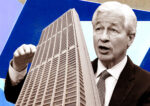Office landlords are constantly pressured to upgrade their assets to remain competitive, but they’ve grown weary of having to fund such improvements amid broader challenges facing commercial real estate.
Building owners have become increasingly reluctant to shoulder the financial burden that comes with tenant upgrades, which often include amenities and renovations that cater to evolving workforce needs, Bisnow reported.
Various Chicago real estate players recently squabbled over who should foot the bill for tenant improvements at Bisnow’s Chicago office summit. While some argued that staying competitive necessitates participation in the amenities arms race, others countered that prevailing market weaknesses make significant capital expenditures unfeasible.
Farbman Group CEO Andy Farbman asserted that unrealistic expectations from tenant representatives risk jeopardizing deals, as landlords struggle to balance profitability with providing incentives for tenants, he said.
R2 principal Matt Pistorio advocated for cost-effective alternatives like paint and carpeting. That costs about $30 per square foot, compared to $100 or $150 per square foot for deeper improvements.
“We have been getting really good returns and having high success rates leasing these second-generation spaces,” Pistorio said. “Tenants just want space soon, they want it immediately. They’re not going out and looking for space 12 to 18 months in advance.”
While some developers in thriving submarkets like Fulton Market have managed to sidestep hefty financing for tenant improvements, others, like Sterling Bay, are pressed to invest significant capital.
Sterling Bay executive vice president Russ Cora stressed the
It’s important to find a middle ground, said Sterling Bay executive vice president Russ Cora. While adding amenities can attract tenants, he cautioned against overcommitting financially.
Since the pandemic, office buildings with at least 10 or more amenities have seen positive net absorption of 23.3 million square feet, while other Class A buildings have lost 50 million square feet of occupancy, the outlet reported, citing JLL.
Despite cautious optimism from some panelists about the future of the Chicago office market, recent data paints a less rosy picture. Chicago’s office vacancy exceeded 25 percent in the first quarter, marking a record high for the seventh straight quarter, according to CBRE.
The beleaguered state of the office sector is especially pronounced in River North, where vacancies stood at 31 percent, and net absorption fell to negative 477,000 square feet last quarter.
—Quinn Donoghue
Read more



